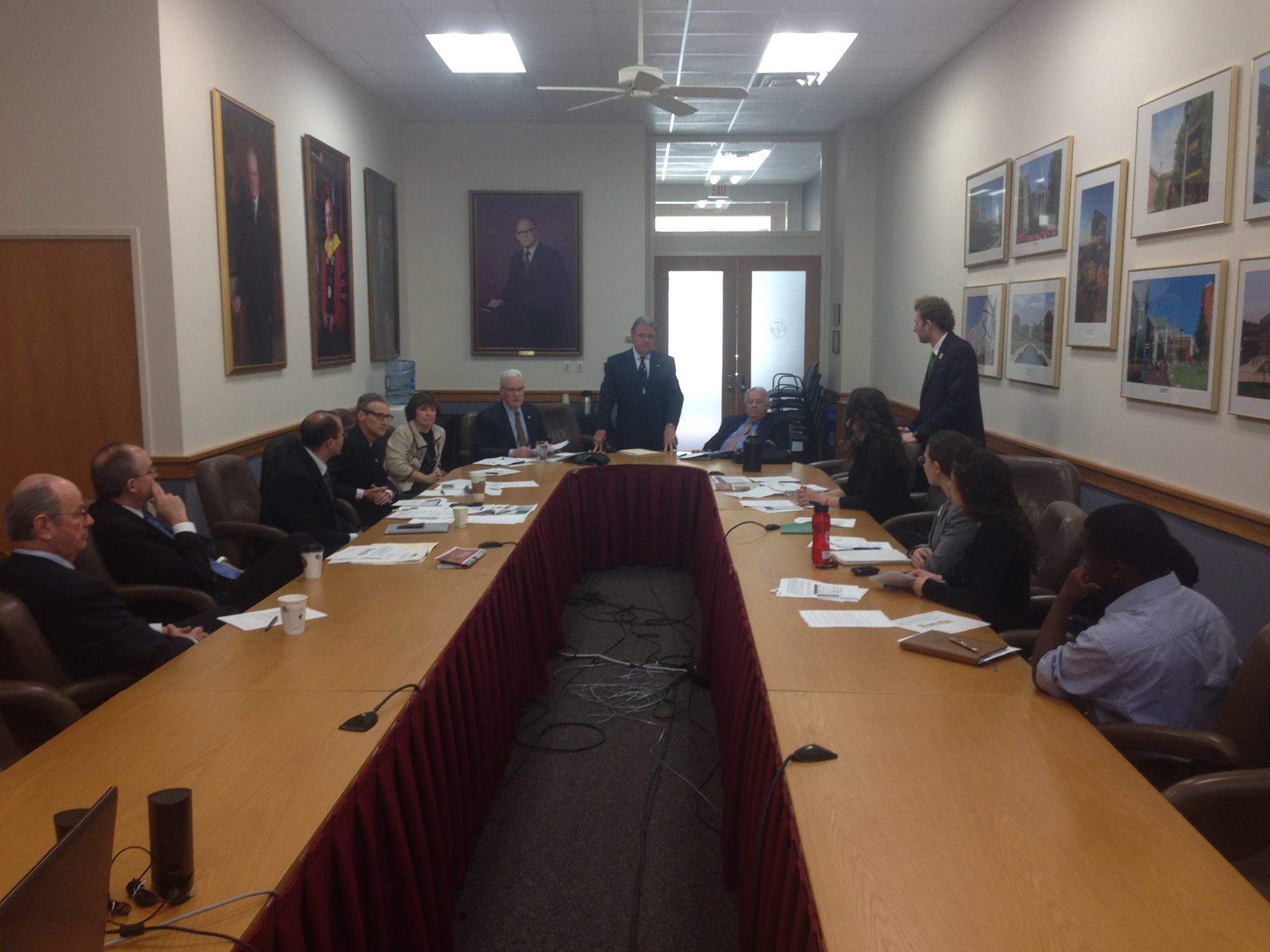After deliberation and talks with University of Maryland students, the University System of Maryland Foundation’s ad hoc committee made formal recommendations on May 27 for the Foundation to divest from fossil fuels.
Recommendations included the Foundation making no direct investments in Carbon Underground 200 companies; the Foundation establishing a position on the investment staff to seek out renewable energy investments; the Foundation joining the Intentional Endowments Network; and the Foundation becoming a signatory to the United Nations Principles for Responsible Investment, according to a system document.
Students from this university’s Student Government Association had met with the ad hoc committee at the Foundation’s headquarters – the Elkins Building on Metzerott Road – on April 26 to learn about the committee’s progress on fossil fuel divestment.
“We’re so thankful for the students because they brought so many important issues to our attention,” said USMF president and CEO Leonard Raley, who has attended multiple conferences on the topic of divestment. “We spent a lot of time analyzing and studying and becoming better educated about the issues that the students brought to our attention.”
In November, the Student Government Association unanimously passed a bill supporting divesting from fossil fuels, or removing this university’s investments from fossil fuel companies and halting future investment, with the goal for this university to be carbon neutral by 2050, said Maya Spaur, SGA director of sustainability.
Currently, the USMF has no direct investments in coal, tar sands or any companies on the Carbon Underground 200 list, Raley said, although the foundation has found that $1.1 million of indirect investments have been exposed to those forms of dirty energy. However, this will all taper off within the next five years, he said.
An indirect investment means that a client has hired an investment fund manager who has a fund with many different investments in all sorts of different companies and industries. It’s up to discretion of the fund manager to decide exactly where the money is going, Raley said. The USMF invests on behalf of this university as well as others in the University System of Maryland and five community colleges.
“That’s typically how the majority of university endowments handle investments, so we’re pretty similar to how most large endowments are set up in terms of hiring fund managers,” Raley said.
Spaur added that the USMF is looking to transition to a direct investment system and “is considering requiring that direct investments do not enter into the Carbon 200,” she said.
This university was the first in the United States that worked to set up a special investment fund, Raley said. It tackles two facets of carbon exposure — fossil fuel reserves and carbon emissions — with the ticker CRBN and started trading on Dec. 9, 2014, according to Business Wire. The USMF worked with BlackRock, a financial asset manager, to set up this fund, and the USMF and United Nations helped to seed it, or provide capital for the initial stages. The USMF also intends to become a signatory to the U.N.’s Principles of Responsible Investing, Raley said. These are guidelines that “aim to incorporate environmental, social and governance factors into investment decisions, to better manage risk and generate sustainable, long-term returns,” according to the Principles for Responsible Investment website.
For the time being, it’s impossible to completely divest from fossil fuel companies, Spaur said, because the USMF is invested in the S&P 500, which includes fossil fuel companies, but added that “we know in the future we’re going to try to get the number as close to zero as we can.”
Spaur emphasized that whether this university divests from fossil fuels has no effect on the cost of tuition — only university investments. And there are key roles that students can play, she said.
“For students who have the capacity to invest, they should make the choice not to invest in fossil fuel companies and to really take a hard look at what they’re investing in,” Spaur said, noting that students should make sure they’re not investing in any company that’s involved in the extraction, infrastructure or transportation of fossil fuels.
The divestment movement in the USMF began with SGA representatives from this university as well as Salisbury University and Towson University petitioning the USMF for a divestment feasibility study in fall 2013, though the first meeting transpired in spring 2014, Spaur said.
USMF chief financial officer and finance vice president Pamela Purcell stressed that the USMF took the issue of divestment very seriously from the onset.
“We had an expert called in to the ad hoc meeting to talk to us about the whole issue,” she said. “We really tried to … talk to people on all sides of the issue.”
Raley said he supports the push to continue to research and learn more about the topic of divestment.
“It’s imperative that we keep talking, having face-to-face discussions and having people express views,” he said.



